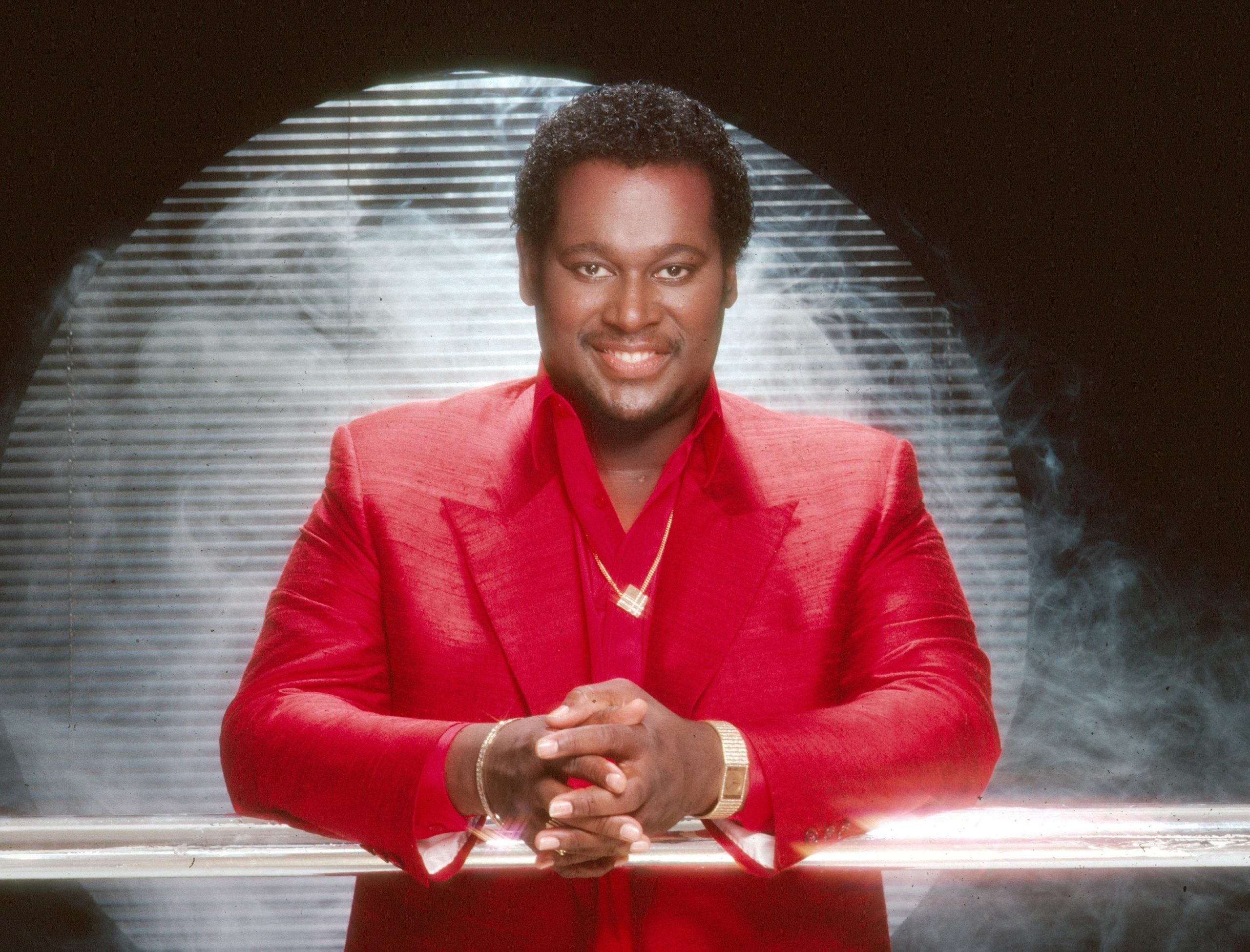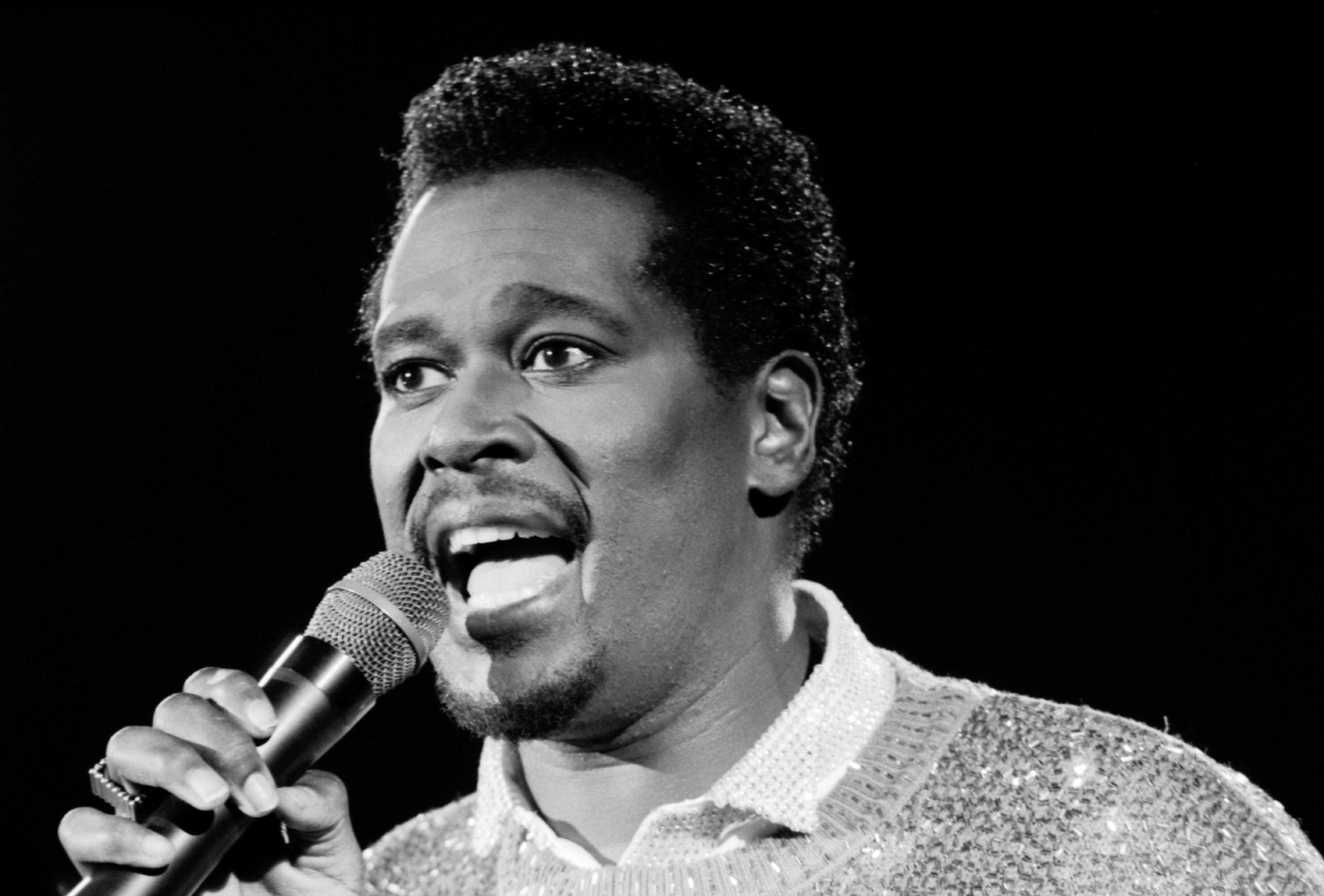
Among the many knowing moments where Black folks could really see themselves in last year’s Queen & Slim was a scene in which on-the-lam lovers Queen (Jodie Turner-Smith) and Slim (Daniel Kaluuya) have a debate about Fat Luther versus Skinny Luther. As “Never Too Much” blares from their car stereo, he’s on Team Fat Luther; she’s on Team Skinny Luther. It’s meant to be a glimpse of joy amidst all the chaos surrounding them — and damn if every Black person didn’t smile and nod in total recognition when they saw it.
Because for us, Luther Vandross is and always will be family. Just as he is our forever “Superstar.”

Fifteen years after his death from a heart attack — following a stroke in 2003 —he is still very much a part of the soundtrack of our lives. And with the holiday season upon us, Vandross — who, despite the Idris Elba series Luther, is still the only Luther who just needs one name — gives us all the family feels whether he’s singing Yule tunes (as on 1995’s This Is Christmas) or not.
Since Vandross released his debut solo single — “Never Too Much,” from the album of the same name — in 1981, there hasn’t been a minute, hour, day or night that we haven’t loved him. And you can put “Never Too Much” on the short list of the very best ’80s R&B bops. It’s still a guaranteed party-starter almost 40 years later.

When Vandross came into his own with “Never Too Much,” he was already 30, which made him a relatively late bloomer as a solo artist. But of course he arrived with bona-fides, having been both an in-demand background vocalist for the likes of Chaka Khan and Roberta Flack as well as lead singer of Change (“Searching,” “The Glow of Love”).
It was in his solo career, though, that Luther became Luther. His first-rate ’80s albums — also including 1982’s Forever, For Always, For Love, 1983’s Busy Body, 1985’s The Night I Fell in Love, 1986’s Give Me a Reason and 1988’s Any Love — were staples in many a Black household, back when they were on vinyl and cassette. From smooth-grooving hits like “Bad Boy/Having a Party” and “Stop to Love” to beloved ballads like “Make Me a Believer” and “So Amazing,” it was music that you could grow up on and grow old with — from grandparents to grandchildren.

As a singer, he was a velvety-voiced master who could sing the phone book back when people actually used those. The King of Covers, he could take other people’s songs — whether it was Dionne Warwick’s “A House Is Not a Home,” the Temptations’ “Since I Lost My Baby” or Brenda Russell’s “If Only for One Night” — and make them his own. When you can get R&B heads to regard your version of a Stevie Wonder song as the definitive one — as Vandross did with his 1985 remake of “Creepin’ ” — you got skills. And guts.

In particular, Vandross — who would also produce and write for such queens as Aretha Franklin, Diana Ross, Whitney Houston and Warwick — has always had a special relationship with Black women. Few male artists in R&B history could speak to them and touch their soul the way that he did. And he has surely helped many Black men to get in touch with their sensitivity. That’s why Luther — who would have turned 70 next April — will be ours forever and for always.